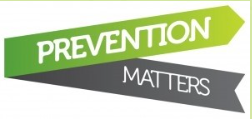
The Comprehensive Health and Prevention Programs (CHPP) department provides districts and schools with leadership, consultation, coaching, training, and technical assistance to meet education code requirements and carry out federal and state funded comprehensive alcohol, tobacco, and other drug prevention programs. For more information about training and technical assistance in this area, please contact CHPP Coordinator Jason Claros at jclaros@vcoe.org.
Why Prevention Matters for Teens
Research has shown that people are more likely to develop an addiction if they start abusing drugs at a young age. The goal of prevention is often just postponing that first drink until the teen’s brain has developed enough to enable responsible decision-making skills. The teenage brain is in a state of rapid development, which can lead to erratic behavior. Research suggests the human brain isn’t completely mature until 25 years old, and the most dramatic changes in growth happen during adolescence. Because of this, teens aren’t always mentally equipped to make the best decisions about their health and future.
Teens Who May Be at Risk
Statistically, some teenagers may be at a higher risk of developing a substance abuse problem. Recognizing who may be at risk could provide important preventive help for teens who need it most. Common risk factors include teens who:
- Transition periods. For example, going from middle to high school means teens are often introduced to new pressures and influences.
- Mental health disorders such as depression, anxiety and other mental health concerns can manifest in children at a young age. In many cases, those who face these issues are more likely to have a substance abuse problem.
- Teens that don’t have positive adult influences.
Opens in new window
PDF Download
Word Download
Excel Download
PowerPoint Download
Document Download
Opens in new window
PDF Download
Word Download
Excel Download
PowerPoint Download
Document Download
Opens in new window
PDF Download
Word Download
Excel Download
PowerPoint Download
Document Download
Opens in new window
PDF Download
Word Download
Excel Download
PowerPoint Download
Document Download
Opens in new window
PDF Download
Word Download
Excel Download
PowerPoint Download
Document Download
Opens in new window
PDF Download
Word Download
Excel Download
PowerPoint Download
Document Download
Opens in new window
PDF Download
Word Download
Excel Download
PowerPoint Download
Document Download